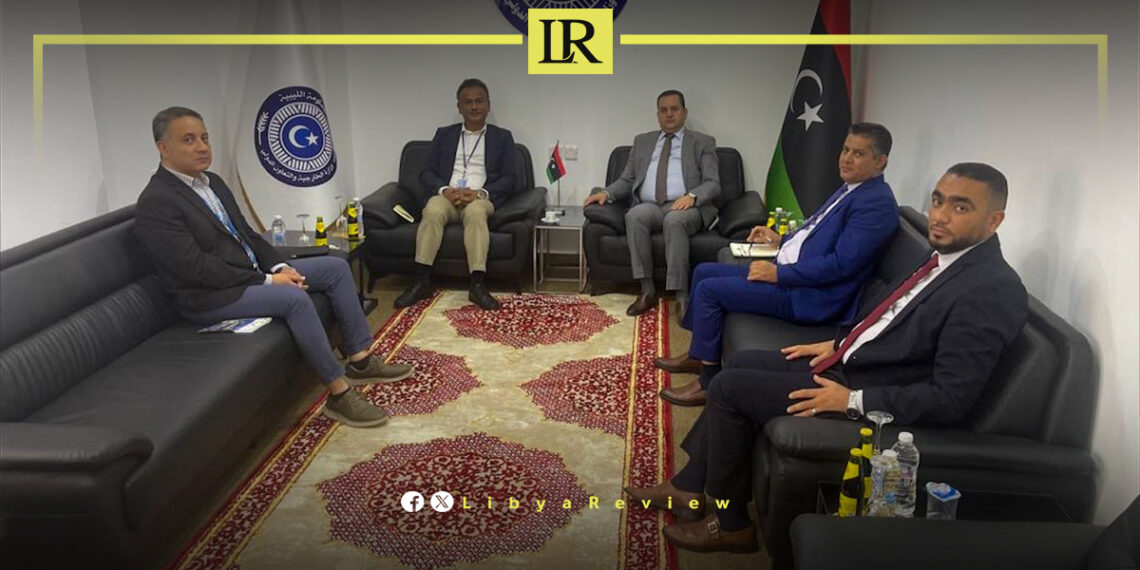Libya’s Minister of Foreign Affairs and International Cooperation, Dr. Abdel-Hadi Al-Hwaij, met on Thursday with Imad Abdel Rahman, Head of the UN High Commissioner for Refugees (UNHCR) office in Benghazi, in the presence of senior ministry officials.
The discussions centered on UNHCR programs in Libya, particularly those related to voluntary repatriation and coordination with the Sudanese Consulate. The meeting also reviewed mechanisms for the operations of international organizations in eastern Libya.
Minister Al-Hwaij stressed the importance of ensuring that international organizations comply with national laws and regulations, in line with the directive issued by Prime Minister Osama Hammad on the entry and movement of diplomatic missions and international organizations in the country.
The meeting underscores Libya’s ongoing efforts to balance humanitarian cooperation with sovereignty and legal frameworks, while coordinating with international bodies to address migration and refugee challenges.
Libya has been in chaos since a NATO-backed uprising toppled longtime leader Muammar Gaddafi in 2011. The county has for years been split between rival administrations.
Libya’s economy, heavily reliant on oil, has suffered due to the ongoing conflict. The instability has led to fluctuations in oil production and prices, impacting the global oil market and Libya’s economy.
The conflict has led to a significant humanitarian crisis in Libya, with thousands of people killed, and many more displaced. Migrants and refugees using Libya as a transit point to Europe have also faced dire conditions.
The planned elections for December 2021 were delayed due to disagreements over election laws and the eligibility of certain candidates. This delay has raised concerns about the feasibility of a peaceful political transition.
Despite the ceasefire, security remains a significant concern with sporadic fighting and the presence of mercenaries and foreign fighters. The unification of the military and the removal of foreign forces are crucial challenges.


